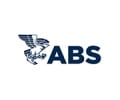Electrolyzers, Carbon Capture and the Cost of Green Fuels, Dominate the Discussion Between ABS Chairman and CEO and Leading Economist

Reducing the cost of electrolyzers and rapid adoption of onboard carbon capture technology is going to be critical if shipping is to reach its net zero carbon emissions target.
That was the message for the industry from an inspirational discussion at London International Shipping Week between leading maritime industry economist Dr. Martin Stopford and Christopher J. Wiernicki, ABS Chairman and CEO. The pair held a wide-ranging discussion at the Capital Link Forum exploring key hurdles and drivers for shipping’s green energy transition, including fuel availability, carbon capture and the impact of the escalating costs of green fuels.
“The entire conversation is about what’s going on in the internal combustion engine, but as you move from methanol to ammonia and LNG to green methanol, green ammonia and synthetic LNG, the pace is going to be driven by the cost of the electrolyzer,” said Wiernicki. “So, the two big things that I look at are how quickly you can reduce the cost of the electrolyzer and the cost of carbon capture. If you can’t reduce the cost of the electrolyzer fast enough, then you’re into carbon capture and you have to go from grey to blue to green.”
Dr. Stopford said: “Green fuels are probably a step backwards for an industry going from heavy fuel oil and the next bit of bad news is they’re going to cost you $2,000 to $3,000 a ton. This changes the whole economics of the business. And the final bit of bad news is that you won’t be able to get any of these fuels anyway because there are so many heavyweights already in the queue. For example, we feed the world by ammonia, which increases the yields 4, 5 or 6 times and there is nothing else if you take that away. Innovation is about making things work that don’t work and we will find the only way you could bridge that enormous gap between running down the carbon the way the IMO wants us to is that you build or retrofit a lot of ships with carbon capture.”
Wiernicki replied: “Size, a strong balance sheet, great charter relationships and an understanding of the impact of technology on your commercial business is going to make all the difference in the world going forwards. You’re going to have to take an eagle eye look at energy efficiency and onboard carbon capture because you can’t build enough ships to magically change the global fleet. So, retrofits are going to be important. Owners will need to take advantage of layering of technologies. They are going to have to figure out what makes sense relative to the risk profile of the business. Commercial decisions in our industry are going to be more than just the historical reading of supply and demand. It’s going to be reading the technology to take a calculated risk with partners and charterers to move this forward.”
Source: ABS
